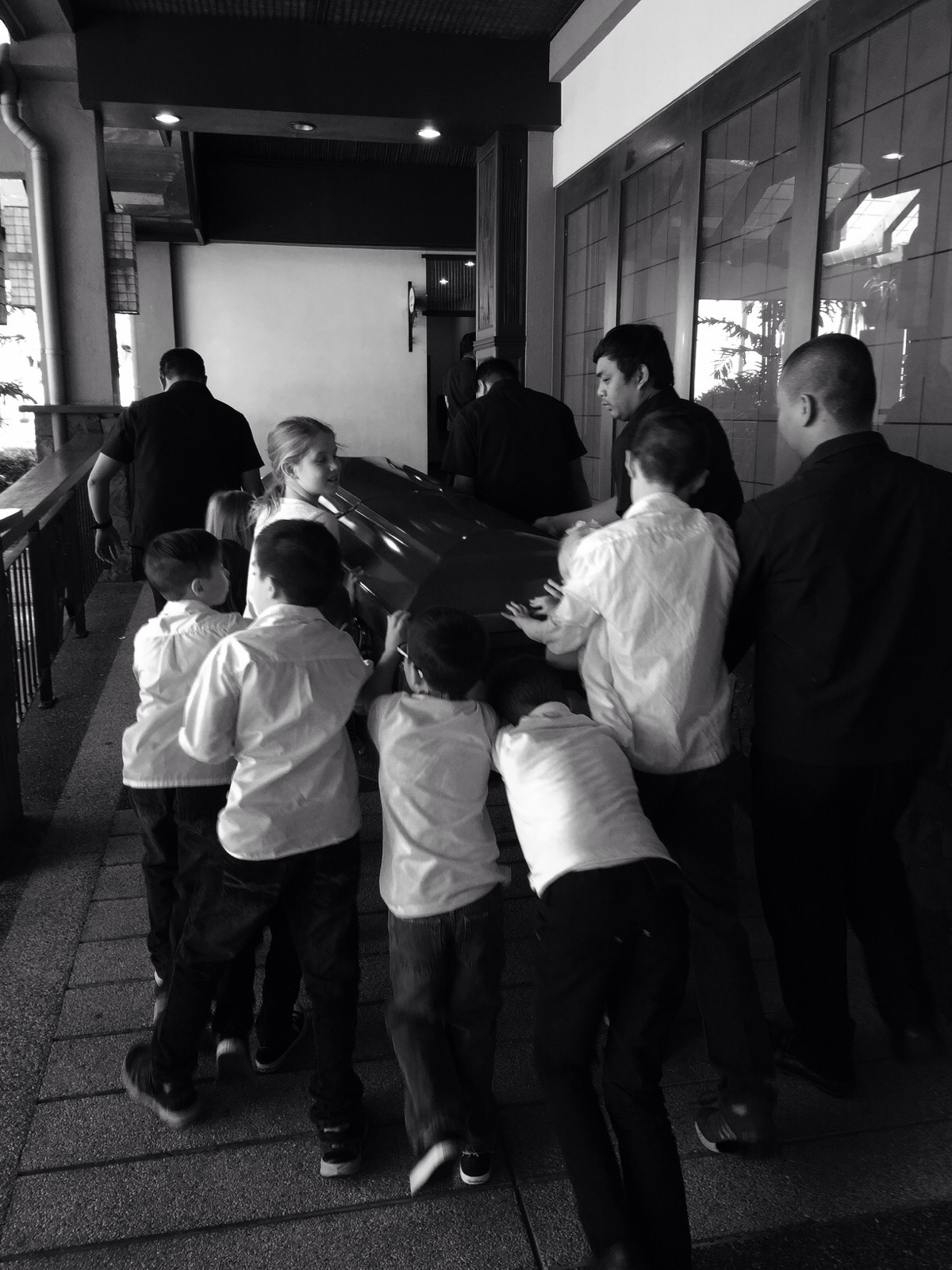
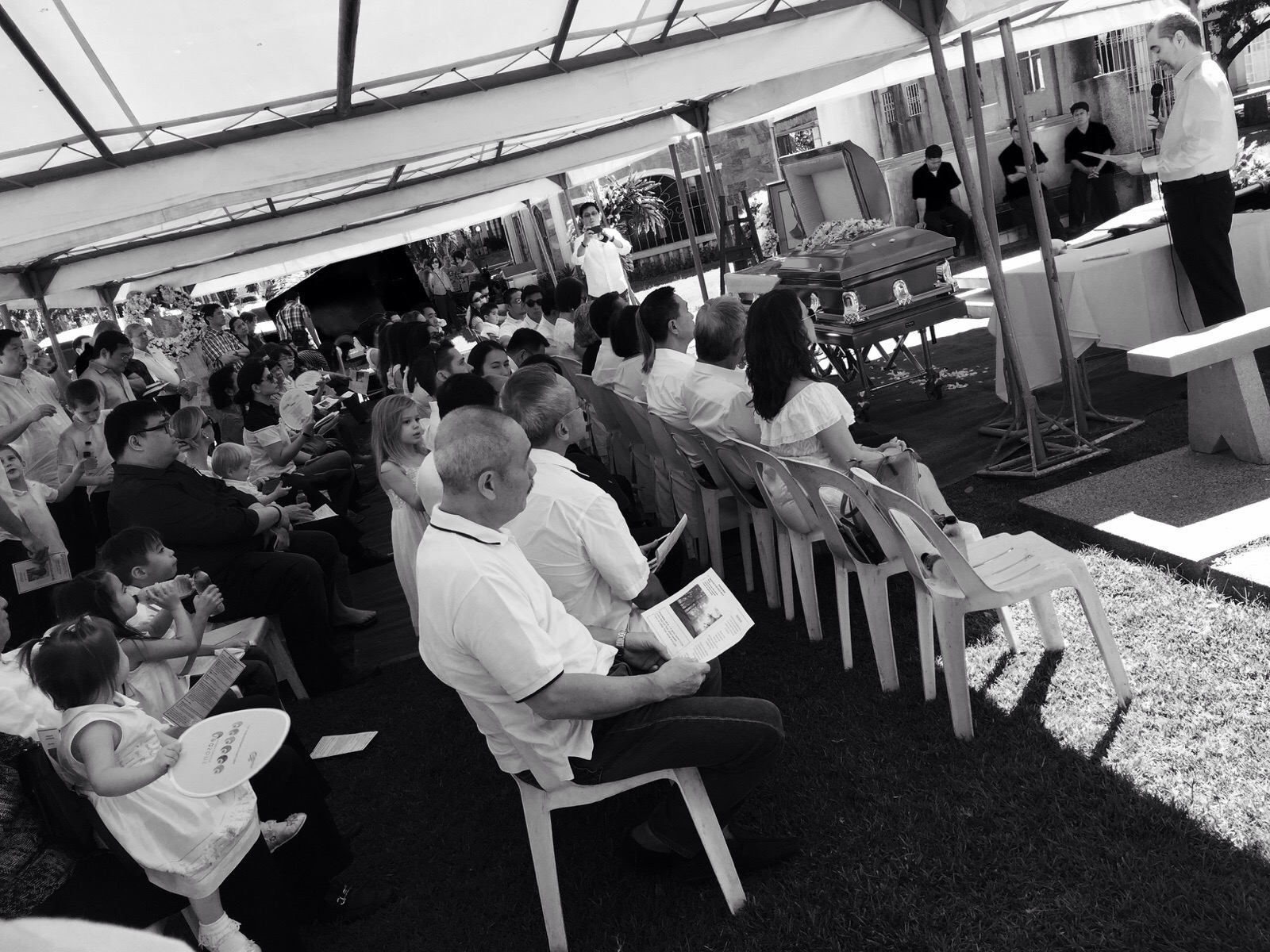
 We buried my angkong today. It was a tearful goodbye but the joy of knowing he entered into eternity with the Lord superseded the sorrow of his parting.
We buried my angkong today. It was a tearful goodbye but the joy of knowing he entered into eternity with the Lord superseded the sorrow of his parting.
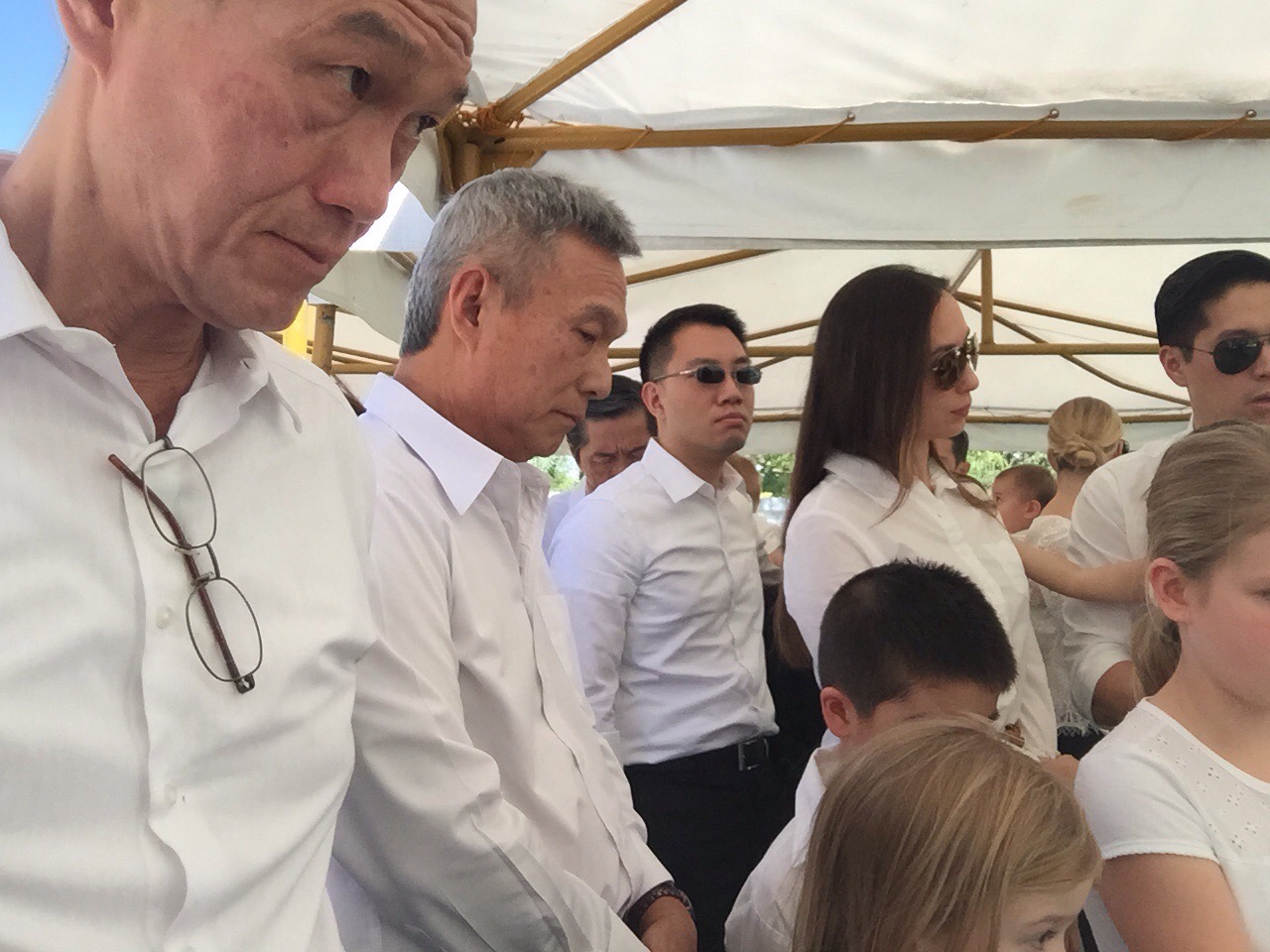 “He is in heaven with Jesus,” Catalina said after I explained to her that it was merely his body that we were looking at inside the casket. He also lived to be 96 years old and passed rather peacefully, dying of old age rather than sickness. What more could we have asked for? God was gracious to him.
“He is in heaven with Jesus,” Catalina said after I explained to her that it was merely his body that we were looking at inside the casket. He also lived to be 96 years old and passed rather peacefully, dying of old age rather than sickness. What more could we have asked for? God was gracious to him.
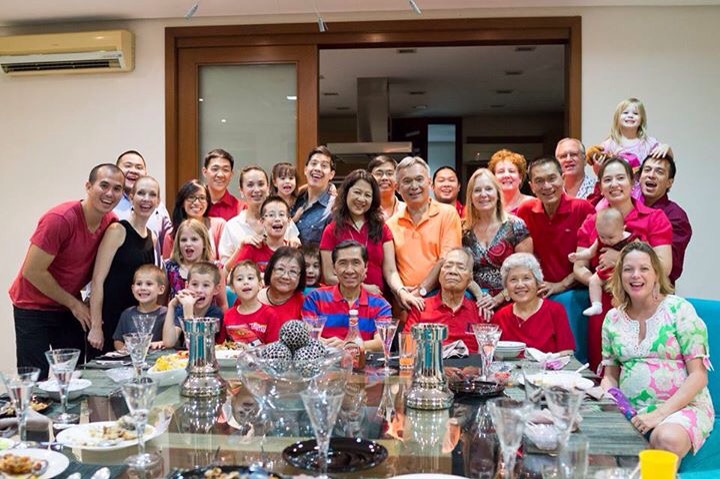
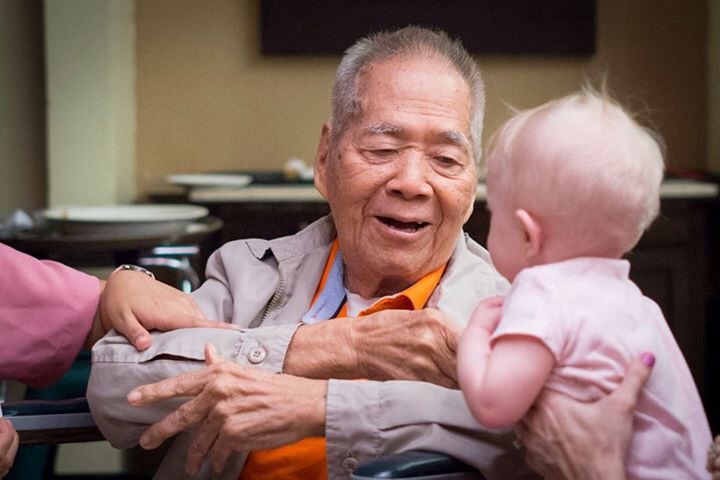 Furthermore, he spent the last six years living with my parents after the calamitous flooding of Typhoon Ondoy struck, which gave our side of the family special time with him. My parents diligently cared for him. They also interacted with him daily, took him traveling, brought him to worship services, family gatherings, and events.
Furthermore, he spent the last six years living with my parents after the calamitous flooding of Typhoon Ondoy struck, which gave our side of the family special time with him. My parents diligently cared for him. They also interacted with him daily, took him traveling, brought him to worship services, family gatherings, and events.
Dad believed in honoring his father this way. I remember my dad quoting angkong, who told his children, “Be kind and do good to us (your parents) while we are alive, and don’t do things like build a mausoleum for us when we are dead, when it won’t matter.” My dad took this to heart. He didn’t want to live with regret. More importantly, he respected his parents very much.
When I found out that angkong died last Sunday, I grieved his departure. Although he deteriorated significantly in the last year and I knew he would probably go soon, his death still saddened me. It’s never easy to lose a family member. And I know it was sobering for my parents. Seeing them cry wasn’t easy.
To honor angkong, I decided to write a memoir that can be passed on to my children. I want them to remember the man he was and the legacy he left behind. Piecing together information from my aunt who flew in from Canada (the oldest sibling), my dad, and eulogies given by relatives during the wake services, I highlighted the salient details of his life.
Angkong, formally known to others as Ernesto Tan-Chi Sr., was born in the year 1919, in Fujian province in China. He grew up in a town, YongChun, which means “Forever Spring.”
Forever spring. What a fitting phrase to describe my angkong — a man who exuded life and positivity. Angkong radiated confidence and he captivated people, strangers included, with his charm and friendliness.
In the early 1940s he met my grandmather, Luisa, whose family was from Fujian as well. Ama, as we called her, studied at a prestigious university in Shanghai but grew up in Manila. She was born into a traditional Chinese family. I discovered that her mother (my great grandmother) had incredibly tiny feet because they were bound when she was younger. According to my aunt, the smaller the feet the more desirable. Apparently, rich families practiced feet binding. (Thank God that painful practice stopped with my great grandmother!)
Angkong and ama found each other in the Philippines. Angkong migrated to the Philippines and first worked as a caragador. Then he got a break as a salesman in Divisoria, selling fabric. His beginnings were humble, but he was intelligent, hard working, and gifted with business acumen. Some years later, he began his own trading company, where he was exposed to importing cotton. This opened the door to a bigger venture, a textile corporation that he named Riverside Mills.
Riverside Mills controlled the importation of cotton sourced from Egypt and California. Angkong built the first fully integrated textile company with factories spanning an area so large you couldn’t walk around it in a single day. The facilities operated machines that separated seeds from cotton, combed it, stretched it into thread, wove it, and turned it into fabric, plain or printed. Afterwards, the mills could also manufacture clothing and other goods. It was an end-to-end operation. Eventually, Riverside Mills also opened a polyester plant.
At the height of his business success, angkong was a tycoon, playing golf with high ranking public officials, traveling the world, holding office in the 34th floor of the Empire State building in New York City, and cultivating friendships with world famous people like the Rockefellers. An article in Reader’s Digest in the 1960’s included him in the list of Who’s Who In Asia.
When I was a young girl, my earliest memories of Riverside Mills included Judo lessons. My brothers and I went there weekly, wearing our white gis. I never cared too much for the sport but it was certainly a fun adventure entering the sprawling facility that housed the mills.
Some years into the government administration during the 1970s, the business underwent a hostile take-over. Furthermore, a series of bad decisions led to its demise, coupled by smuggling issues that gave competitors an unfair advantage.
In the end, angkong’s textile empire collapsed and my dad, who ran operations for the polyster company was fired by a man connected with one of the former presidents of the Philippines, a man who used to be his comrade and golfing buddy. Looking back, my dad saw this as God’s divinely appointed way of removing him from a world that would’ve corrupted him spiritually. Although my dad came to know Jesus as a young man, it was the humbling experience of losing his family’s wealth and power that changed the trajectory of his life for the better.
From the pinnacle of worldly success, angkong and his children found themselves trying to salvage whatever remained of his investments and smaller companies. The Tan-Chi name was defamed and mocked for the heights from which it had fallen. And yet there’s more to be told of the story, the more glorious part that speaks of an enduring heritage, of success beyond money, power, and prestige.
If there is anything I hope my children will remember, it is the man who was a father, husband, grandfather, and great grandfather. Beyond the history of his success to the eventual end of his textile business, angkong’s greater heritage was his character.
Live simply. Even though angkong was incredibly wealthy, he didn’t buy luxury goods. Although my ama had an eye for jewelry, she and angkong were sensible spenders. For angkong, paying a ridiculous amount of money for branded products was like assigning false value to items that were made to project an image. His background as a hard working salesman, exposure to trading, and his ownership of a textile company gave him an eye for the true value of goods. So he bought what he was willing to pay for, what he needed. He preferred to invest in land, stocks, travel, and business opportunities. Therefore, when he lost so much of his wealth, it wasn’t difficult to adjust to less. He didn’t develop an appetite for over-priced material things. Thankfully, his children inherited the same mindset. Till this day, my dad doesn’t wear branded clothing, watches, or shoes. He and my mom never raised us to desire those things either.
Love people. Angkong made friends everywhere he went. He was genuinely interested in people. He cared for their well-being. According to my dad, he always tried to help his relatives out financially. But even more important was his concern for others on a deeply personal level.
During one of the trips that my brother, Paul, took with angkong to his hometown in China, angkong kept asking Paul to share the gospel with people. Whether it was people angkong and Paul met for the first time or family and old friends, angkong would tell them, “My grandson has something good to share with you.” And Paul would look at them, unable to fully articulate himself in Mandarin, and proceed to share whatever he could of the good news of Jesus’ salvation because angkong would insist.
Some years prior, angkong had also given his life to Jesus. Although he believed in the teachings of Confucius in the past, and proudly called him “older than Jesus Christ,” he prayed to accept Jesus as His Lord and Savior after a conversation with Dr. Bill Bright, the founder of Campus Crusade for Christ.
Be disciplined. Every morning, angkong would wake up early and encourage his own children to do the same. Some of them appreciated it and other did not, but today, my dad and his siblings are wired the same way. They all go to bed early and wake up early. They have routines and schedules.
Angkong also lived by the mantra, “everything in moderation,” so he never overate. In fact, he measured fullness by percentages. “Angkong, do you want some more food?” He would reply, “I’m okay. I’m 80% or 90% full.” He also exercised daily, whether it was golf or walking around outdoors, angkong found ways to stay fit and healthy.
Relax, don’t worry. Angkong never hurried or rushed through an activity. He liked to take his time, to revel in the moment. When my dad traveled with him, he would get anxious about making it to the boarding gate of a flight they had to catch. But angkong would tell him to relax and not worry. He was such an easy-going guy, never harried or stressed out. He enjoyed hanging out, observing people, and taking in the sites of places he visited. Maybe this is also why he lived to a ripe, old age without many health complications! He didn’t sweat the small stuff and he knew how to enjoy himself.
Don’t criticize and don’t harbor anger. When angkong lost Riverside Mills, he never blamed it on others. He didn’t hold a grudge against people who betrayed him or turned against him, nor did he speak ill of them. He thought the best of people and circumstances, too. His positivity was remarkable. My dad said he never heard his father slander others or belittle them.
Be faithful to your spouse. For eighteen years of her life my ama (grandmother) was debilitated. For the last years of her life she was practically a vegetable. She suffered complications from multiple strokes and type 2 diabetes. But angkong didn’t womanize. He took care of her and honored her. That was God’s grace! His example demonstrated to us what commitment to one’s spouse ought to be like.
Angkong has passed from this earth, but his legacy lives on. Someday, I hope my children will realize how privileged they were to have a great grandfather who modeled noble character. More precious than the money he could have left behind or the businesses he could have bequeathed to his sons and daughters, he gave our clan a good example to follow. His Christ-likeness was his great inheritance to us. So thank you, angkong, for the choices you made – the attitudes, perspectives, and deeds that defined you as amazing to me. You will be missed but I thank God that this isn’t the end. I will see you again where it is eternally and forever spring…

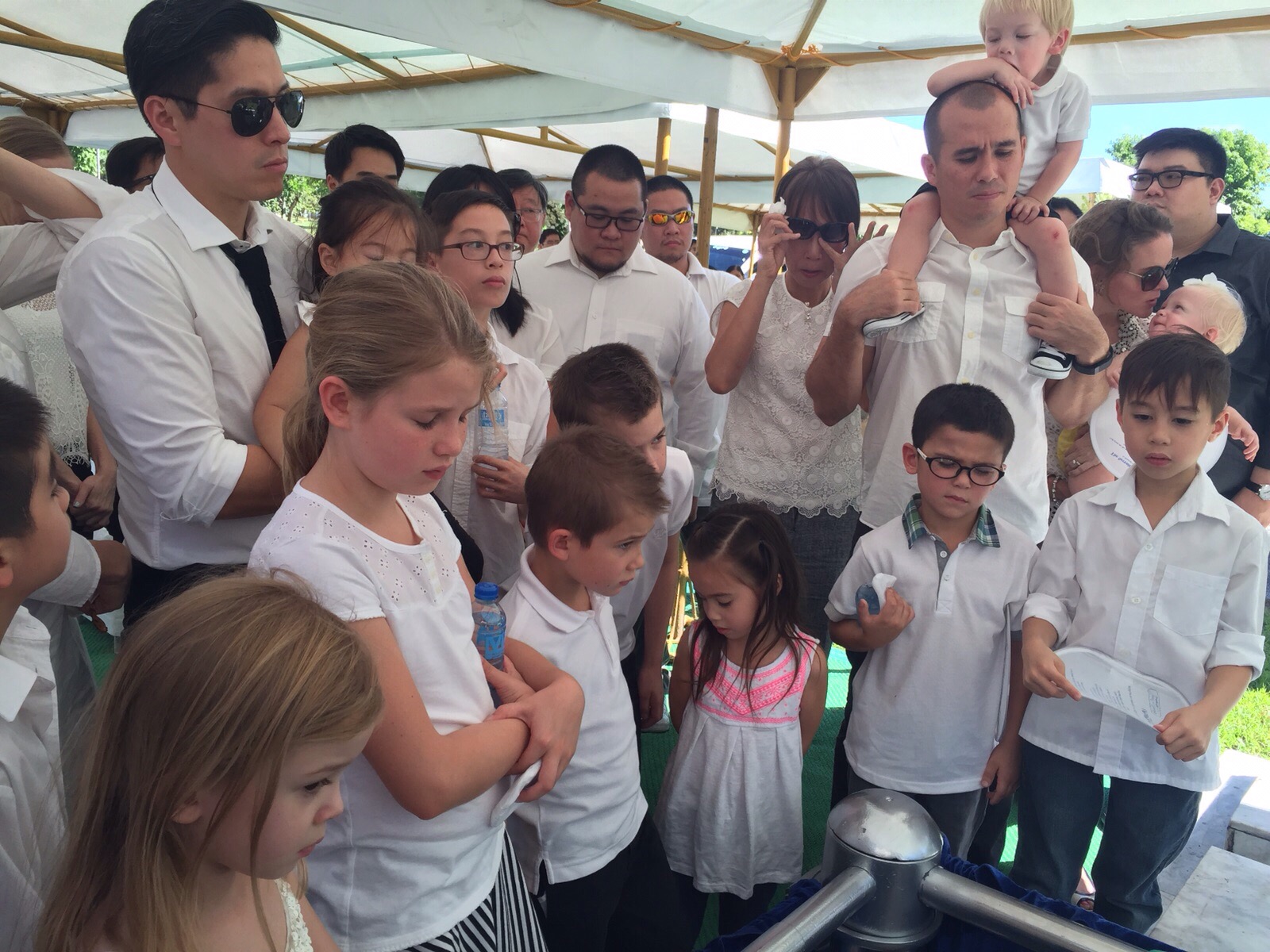

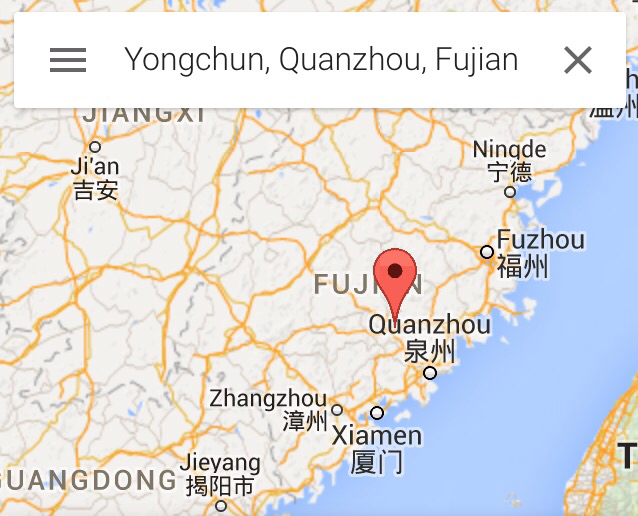

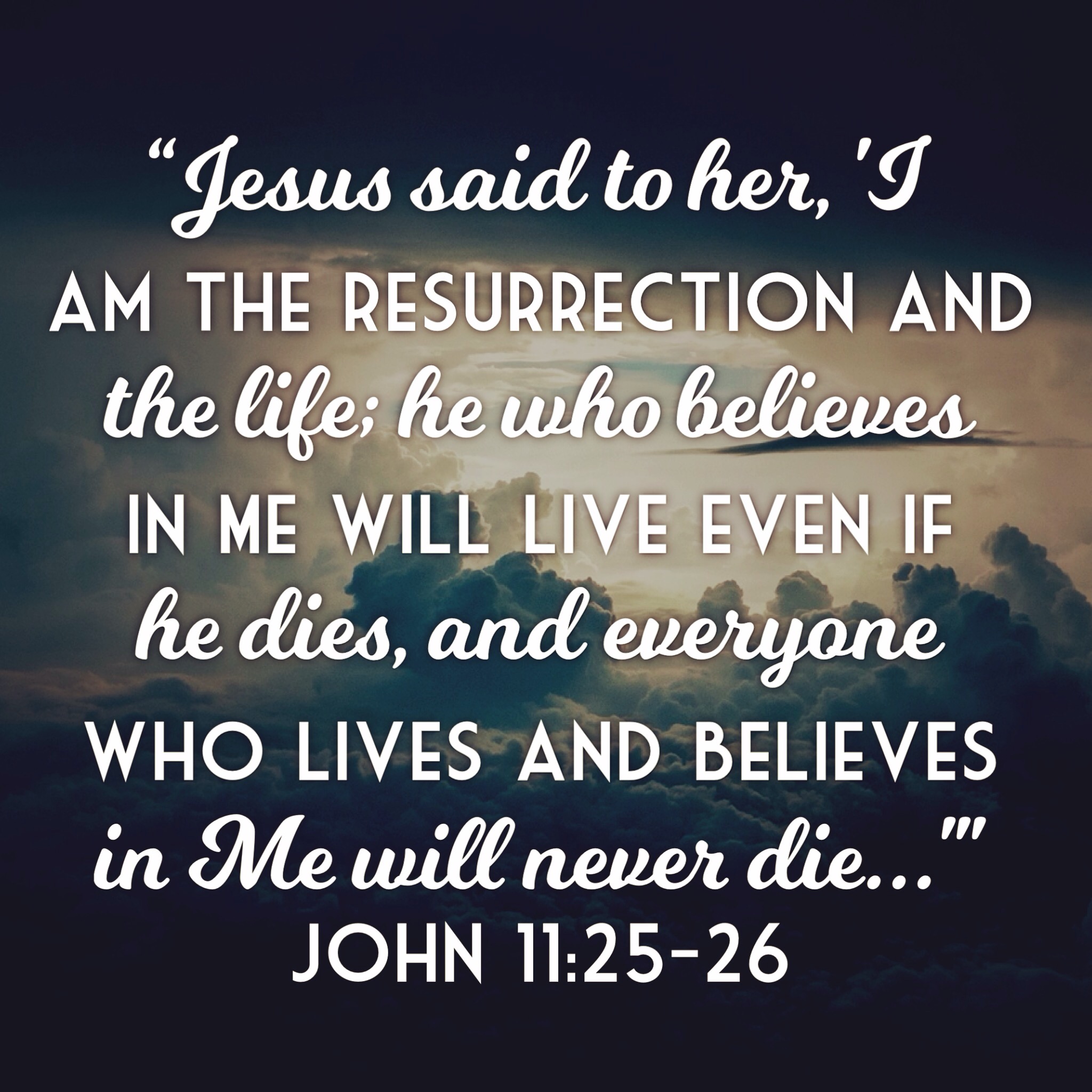

Wow! What a blessed legacy! Thank you for sharing 🙂
Praise God! All glory to Him!
Thank you for sharing this. It affirms that whatever choice we make now affects not just our future, but even that of our children’s children’s future. What a wonderful godly legacy your angkong left your family. Praise God indeed!????
Thank you for sharing. Truly God is working in your family. God bless you more and more!!
God bless you, too!!!
Hi Ms. Joy. Thanks for sharing. Worth my time to read this blog over and over again.
God bless you and your family????
Thanks Au! God bless you, too!
my lolo, who is also 96, passed on last nov. 30. it’s comforting that he’s now with the Lord. I also got the opportunity to share Christ with him the night before he died. i have to thank my dgroup for the encouragement, because i really do not know the words to say. he lived simply and very diligent (a couple of years before he got sick, he still rides his bike to go to his rice field). all that I remember now are happy memories with him
hi ms joy. happy eternal birthday to your angkong. i have question about the passages in the scripture that seem to imply different things about what happens to those who put their faith in Jesus upon physical death. Do we slumber first and rise on the sound of the trumpet in rapture; or do we see Jesus right away and be with Him from then on? i read in internet some things, that the soul goes with the Lord but the resurrected body will be given only in rapture. there are writings online too that it’s not simply between heaven and hell but that heaven is different from paradise, and there’s a hades that is not yet hell.
i’d also like to ask if God is not grieved when His children practice boxing or martial arts or adventures and the like that put the temple of the Holy Spirit in danger and also inflict harm on other people’s body?
thank you!
In spring 1968 (at the time, I was in my 19) I was in the Public Gardens of Milano (Italy) drawing with my easel. A man stopped near to me, and he appreciated my work, so I decided to make a gift to him. So the day after I went to his hotel – Principe di Savoia/room 559 – and I left at the reception the gift of my drawing for him.
This is always a nice souvenir for me, to remember that magic moment, and I’m very happy to share it with you.
Kind regards to you all